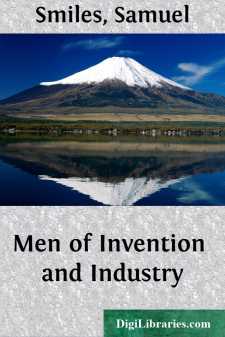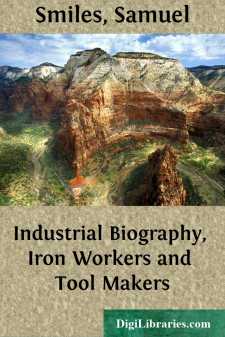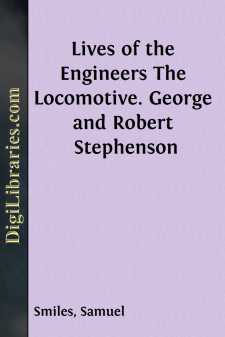Categories
- Antiques & Collectibles 13
- Architecture 36
- Art 48
- Bibles 22
- Biography & Autobiography 813
- Body, Mind & Spirit 142
- Business & Economics 28
- Children's Books 16
- Children's Fiction 13
- Computers 4
- Cooking 94
- Crafts & Hobbies 4
- Drama 346
- Education 46
- Family & Relationships 57
- Fiction 11829
- Games 19
- Gardening 17
- Health & Fitness 34
- History 1377
- House & Home 1
- Humor 147
- Juvenile Fiction 1873
- Juvenile Nonfiction 202
- Language Arts & Disciplines 88
- Law 16
- Literary Collections 686
- Literary Criticism 179
- Mathematics 13
- Medical 41
- Music 40
- Nature 179
- Non-Classifiable 1768
- Performing Arts 7
- Periodicals 1453
- Philosophy 64
- Photography 2
- Poetry 896
- Political Science 203
- Psychology 42
- Reference 154
- Religion 513
- Science 126
- Self-Help 84
- Social Science 81
- Sports & Recreation 34
- Study Aids 3
- Technology & Engineering 59
- Transportation 23
- Travel 463
- True Crime 29
Men of Invention and Industry
by: Samuel Smiles
Categories:
Description:
Excerpt
CHAPTER I.
"A speck in the Northern Ocean, with a rocky coast, an ungenial climate, and a soil scarcely fruitful,—this was the material patrimony which descended to the English race—an inheritance that would have been little worth but for the inestimable moral gift that accompanied it. Yes; from Celts, Saxons, Danes, Normans—from some or all of them—have come down with English nationality a talisman that could command sunshine, and plenty, and empire, and fame. The 'go' which they transmitted to us—the national vis—this it is which made the old Angle-land a glorious heritage. Of this we have had a portion above our brethren—good measure, running over. Through this our island-mother has stretched out her arms till they enriched the globe of the earth....Britain, without her energy and enterprise, what would she be in Europe?"—Blackwood's Edinburgh Magazine (1870).
In one of the few records of Sir Isaac Newton's life which he left for the benefit of others, the following comprehensive thought occurs:
"It is certainly apparent that the inhabitants of this world are of a short date, seeing that all arts, as letters, ships, printing, the needle, &c., were discovered within the memory of history."
If this were true in Newton's time, how much truer is it now. Most of the inventions which are so greatly influencing, as well as advancing, the civilization of the world at the present time, have been discovered within the last hundred or hundred and fifty years. We do not say that man has become so much wiser during that period; for, though he has grown in Knowledge, the most fruitful of all things were said by "the heirs of all the ages" thousands of years ago.
But as regards Physical Science, the progress made during the last hundred years has been very great. Its most recent triumphs have been in connection with the discovery of electric power and electric light. Perhaps the most important invention, however, was that of the working steam engine, made by Watt only about a hundred years ago. The most recent application of this form of energy has been in the propulsion of ships, which has already produced so great an effect upon commerce, navigation, and the spread of population over the world.
Equally important has been the influence of the Railway—now the principal means of communication in all civilized countries. This invention has started into full life within our own time. The locomotive engine had for some years been employed in the haulage of coals; but it was not until the opening of the Liverpool and Manchester Railway in 1830, that the importance of the invention came to be acknowledged. The locomotive railway has since been everywhere adopted throughout Europe. In America, Canada, and the Colonies, it has opened up the boundless resources of the soil, bringing the country nearer to the towns, and the towns to the country. It has enhanced the celerity of time, and imparted a new series of conditions to every rank of life....

















